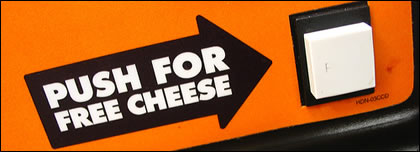We like ‘free’ because it makes us feel good and there’s no downside. But sometimes ‘free’ tricks us into poor decisions.
There is one magical price that we don’t evaluate in the same way as other prices. Unlike the others, this number is guaranteed to make us go mad with desire. It makes us do strange things, it messes with our minds. That price is….FREE!
Imagine you are in the market for an Amazon gift certificate. Consider which of these two offers you would go for (try to do it quickly):
- A $10 gift certificate for FREE!
- A $20 gift certificate costing $7.
If your first instinct is the same as absolutely everyone in a study carried out by Shampan’er and Ariely (2006) you’ll take the first option, the free option. Economically, though, this doesn’t make any sense. When you look at it you can see that the $20 gift certificate is actually better value: you actually get a $13 gift certificate for free, but this is camouflaged by the question. That word ‘free’ just shakes all rationality out of us.
Now compare these two offers and decide which you’d prefer:
- A $10 gift certificate costing $1.
- A $20 gift certificate costing $8.
Now if you’re like the majority of people (64%) in Shampan’er and Ariely’s (2006) study you’ll go for the $20 gift certificate.
The rational-mind-confusing power of the word ‘free’.Notice that this time the price of each gift certificate has only been increased by $1. The $10 gift certificate has gone from $0 to $1 and the $20 gift certificate has gone from $7 to $8. Yet without the rational-mind-confusing power of the word ‘free’, most people suddenly realise that the $20 deal is superior, and decide to pay out for a better return.
The emotional power of free
This means the word ‘free’ is so powerful that we will voluntarily choose a worse deal. Why does this one simple word have such power? Shampan’er and Ariely (2006) argue that there are two major reasons why ‘free’ is so powerful, and they’re both emotional. ‘Free’ makes us feel good and ‘free’ has no downside; it we didn’t pay we’ve got nothing to lose if our decision turns out to be wrong. So it’s hard to feel bad about ‘free’.
To check out the emotional impact of ‘free’ they asked 243 participants to indicate how happy each of these deals made them:
- A Hershey’s bar for free.
- A Hershey’s bar for 1 cent.
- A Lindt chocolate (higher quality) for 13 cents.
- A Lindt chocolate (higher quality) for 14 cents.
The pattern of results showed that people felt more positively about the Hershey’s bar being free than would be expected by it only being 1 cent cheaper. In comparison people were only slightly more happy when the Lindt chocolate was 1 cent cheaper.
Get free stuff! (when you buy other stuff)
These findings have been well-understood by advertising and marketing professionals for decades. Crow-barring the word ‘free’ into any deal will usually improve its allure, even when, strictly speaking, you’re not really getting anything for free.
Think about the ubiquitous ‘buy-one-get-one-free’ deals in which you don’t really get anything for free – you’re just paying half the price. While half-price is good, it doesn’t sound as good as free, does it?
Be aware of the seductive power that ‘free’ holds over your mind – and you might decide you don’t want to pay the price.
[Image credit: vidiot]
Reference
Shampan’er, K., & Ariely, D. (2006) How Small is Zero Price? The True Value of Free Products. Working Paper 06-16. Federal Reserve Bank of Boston’s Research Center for Behavioral Economics and Decision-Making.

